Browse Topics
Categories
Format
Multimedia
Speakers Series
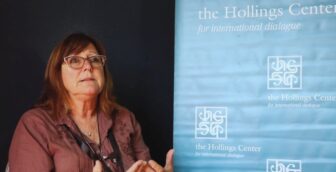
What is Smart Transportation?
Jane Macfarlane discusses how transportation in urban environments has reached a tipping point. She highlights the types of data being collected and how it could be better used for active control across entire networks. She discusses ongoing research on how to design smart transportation systems. Jane Macfarlane has been a pioneer in applying advanced computing […]

Afghanistan-Pakistan Trade Portal
In order to expand mutual peace, prosperity and overcome barriers to trade Hollings Center for International Dialogue grantees from Pakistan and Afghanistan launched an Afghanistan-Pakistan Trade Portal (APTP). The Project aimed at supporting and growing bilateral trade and economic links and between Pakistan and Afghanistan. The trade portal web site can be found at: https://afpaktradeportal.org. […]
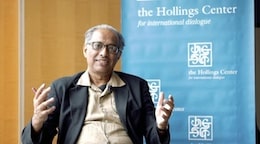
Planning Megacities
Kazi K. Ashraf discusses how a megacity could be defined and the challenges that definition will create for urbanists in planning for megacities. Kazi K. Ashraf is an architect, urbanist and architectural historian. He received his master’s from MIT and a PhD from the University of Pennsylvania. Currently director-general of Bengal Institute for Architecture, Landscapes […]
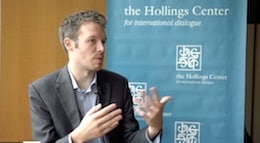
Balancing Preservation with Growth in Megacities
Alex Armlovich discusses the issues surrounding growth and preservation in megacities. He outlines good examples of preserving culture, history, and environment, while dealing with the challenges posed by a megacities needs for growth and development. He further outlines the impact of gentrification on megacity diversity. Alex Armlovich is a fellow in state and local policy […]
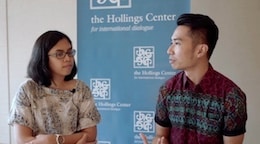
Technology and Megacities
Nina Purwajati and Biondo Sanda Sima give examples of how Indonesia and other countries are using technology to address the challenges of megacities. They later discus the urbanization trends in Indonesia and their potential impact. Nini Purwajati is a senior program manager with 100 Resilient Cities – pioneered by the Rockefeller Foundation (100RC) Asia Pacific […]
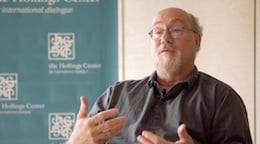
Food Security in Megacities
Andy Fisher discusses how communities can address food injustice challenges in large scale in megacities. Andy Fisher has been a leading force in the food security and food justice movement in the US for the past 25 years. He co-founded and led the primary American food systems alliance, the Community Food Security Coalition, for 17 […]

Oregon & Tunisia Farm-to-School Exchange
In October 2018, the Hollings Center sponsored a small grant that created an exchange program between representatives of Tunisia and the U.S. state of Oregon to compare best practices for Farm to School Food Programs. Led by grantees Andy Fisher, Amy Gilroy, and Maria Lukyanova, officials from both countries had an opportunity to share insights […]
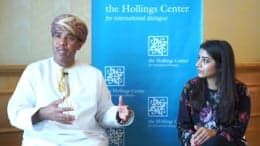
Economic Diversification in Oman
Like other GCC states, Oman is working to diversify its economy and is engaged in a plan to achieve this goal. Khalid Alharibi and Fatma Abduljalil Moosa discuss Oman’s progress toward this goal. They further discuss how small and medium sized enterprises (SMEs) will play a role in Oman’s economic future. Khalid Alharibi is the […]
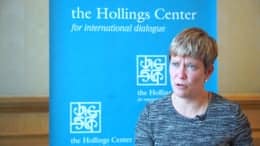
Implications of American-produced Oil and Gas on the GCC Economies
The increase in American capacity for oil and gas production in recent years has positioned the United States to become a net exporter of these resources by 2020. This has the potential for significant geopolitical implications, particularly for GCC economies as they work to diversify their economies away from the energy sector. Samantha Gross discusses […]
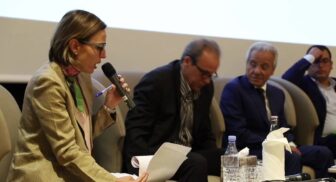
Political Pluralism in Tunisia: Reconciling Deep Reforms with Stability
On October 9, 2018, the Hollings Center for International Dialogue, in cooperation with partners Solidar Tunisia and the Jasmine Foundation, hosted a regional report launch for its Political Pluralism in the Middle East and North Africa initiative. The following video features the keynote address and highlights of the first panel that morning. Participants include: Moderator: […]
A non-profit, non-governmental organization dedicated to fostering dialogue between the United States and countries with predominantly Muslim populations in the Middle East, North Africa, South Asia, Eurasia and Europe
Stay Informed
Subscribe to our mailing list to stay up to date on our latest information.